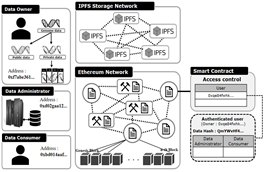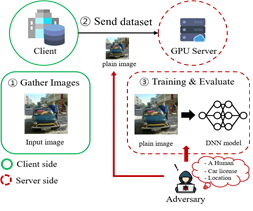
- POSITION
- Prof.
- yhchoi@pusan.ac.kr
- HOMEPAGE
- http://sec.pusan.ac.kr
- Lab.
- Software and System Security Lab.
1. Research Area
The Software and Systems Security lab (S3Lab) is developing artificial intelligence (data mining, machine learning, deep learning) models for secure software and system design, and secure Blockchain platforms, smart contracts and network protocols. Our lab mainly focus on answering the following questions:
- Q1: How can individuals, businesses, and organizations' data and systems be secured against cyberattacks by malicious attackers?
- Ans: Information Security
- Q2: How can we collect, learn, and predict large-scale big data on systems and networks efficiently?
- Ans: Artificial Intelligence (AI)
- Q3: What are the core software technologies for strengthening the competitiveness of companies and institutions in the era of the 4th Industrial Revolution?
- Ans: Secure Software Development
2. Research Overview
- Information Security
We are developing core technologies for malware analysis and detection, fast fully homomorphic encryption model and Blockchain code security.
√ Intelligent malware analysis and detection: analysis of malware propagation characteristics, adversarial examples for detection, signature generation and pattern matching algorithm
√ Fully Homomorphic Encryption (FHE): Design of fast FHE algorithm
√ Intelligent Blockchain code security: Analyze vulnerability of Blockchain platform, smart contract code and P2P(Peer-to-Peer) network protocols

[Fig. 1] Architecture of Genomic data distribution storage using Blockchain
- Secure Artificial Intelligence
We are researching and developing core technologies for Adversarial Learning, Autoencoder, Anomaly Detection and Prediction, and Privacy Protection Deep Learning (PPDL).
√Adversarial Learning and GAN (Generative Adversarial Networks): Methods for generating malicious inputs to increase the probability of false positives in AI algorithms and the defense algorithms
√ Anomaly Detection: Analysis of multi-dimensional data generated by finance, smart factories, electric power, etc., and developing anomaly detection and prediction technologies
√ PPDL (Privacy Preserving Deep Learning): Machine learning (deep learning) algorithm using encrypted data to protect user privacy

[Fig. 2] Example of privacy exposures in cloud environments for deep learning
3. Research Achievements
- Shin, Jinmyeong et al. “Unsupervised multi-stage attack detection framework without details on single-stage attacks,” Future Generation Computer Systems, Vol. 100, PP. 811-825, Nov. 2019 (I/F 5.768, Top 10% SCI(E) Journal)
- Choi, Seok-Hwan et al. “Dynamic Nonparametric Random Forest Using Covariance,” Security and Communication Networks, Vol. 2019, PP. 3984031-3984042, 2019. (I/F 1.376)
- Hwang, Doo-Hee et al. “Privacy-Preserving Compressed Reference-Oriented Alignment Map Using Decentralized Storage,” IEEE Access, Vol. 6, PP. 45990-46001, 2018. (I/F 4.098)